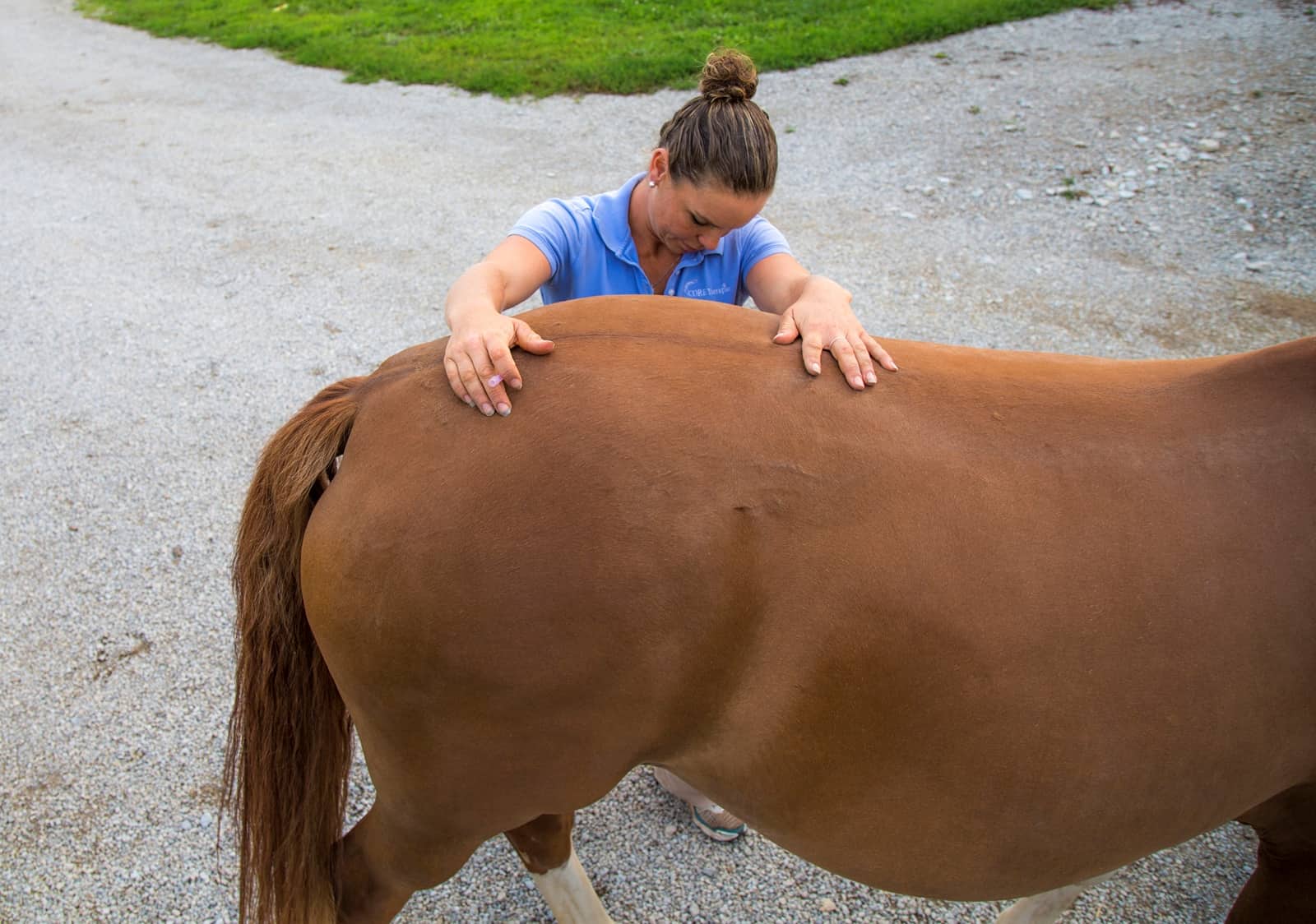Incorporating Chiropractic Into a Horse’s Care

As riders of all disciplines become more competitive and seek every advantage to keep horses at the top of their game, equine chiropractic adjustments have become more commonplace. Chiropractic is also becoming more common as a lameness diagnostic tool and as part of the injured equine athlete’s rehabilitation program. This area of equine medicine, while relatively new and growing, is proving to be an essential part of horses’ routine health and well-being.
History
Throughout the development of human chiropractic medicine, many chiropractors became curious as to whether chiropractic adjustments could benefit animals, as well. Several researchers explored techniques for animal chiropractic, but it wasn’t until Sharon Willoughby, DVM, a veterinarian who later also studied and became licensed in human chiropractic, merged these two worlds and established equine chiropractic techniques that the art really took off. In 1989 Willoughby founded the American Veterinary Chiropractic Association (AVCA) and, today, it and the International Veterinary Chiropractic Association (IVCA) regulate and certify veterinarians and human chiropractors to become animal chiropractors.
What is equine chiropractic?
Owners often believe that chiropractic adjustments involve putting a horse’s luxated (displaced) vertebrae back in place. However, this is not the case.
If the spinal column was that out of alignment, the horse would be severely neurologic. The chiropractor’s goal is to restore full range of motion or mobilization to the many joints in the spinal column. Often, due to the loads we ask horses to carry, the movements we ask them to do, or simply the act of gravity on their spine, the joints that allow for spinal motion become stuck and unable to move properly. This lack of motion can cause muscle spasms, inflammation, swelling, and eventually nerve pain in the area. By finding these areas of subpar motion and manipulating them so they can move again, the chiropractic veterinarian relieves this pain and inflammation and restores full motion to the spine.
When should chiropractic adjustments be performed?
Veterinarians might recommend a horse receive a chiropractic adjustment for a variety of reasons. Most commonly it is part of a horse’s routine performance maintenance. I’ve found that an equine athlete can benefit from a chiropractic adjustment at least every six to eight weeks.
With routine adjustments an equine veterinarian or veterinary chiropractor can often detect early signs of problems. Subtle areas of pain, muscle loss, or stiffness found on a chiropractic adjustment can point to more serious underlying concerns. Often, owners schedule chiropractic adjustments because of back pain and flinching when saddling or brushing their horse. An adjustment can help relieve this pain and possibly alert the owner to issues such as poor saddle fit or spinal arthritis.
Veterinarians can also use chiropractic adjustments to help with their clinical lameness work-up. While an adjustment should not be the only diagnostic or treatment approach used, it could help the veterinarian determine the cause of the lameness. Sometimes, performing an adjustment during a lameness exam can relieve pain caused by lameness compensation and make the true lameness more pronounced and easier to diagnose. Responses to pain or areas of muscle spasms or muscle loss can also clue a practitioner experienced in equine chiropractic in as to where a lameness might originate.
What can a chiropractic adjustment treat?
While equine chiropractic is most commonly used to keep animals comfortable or as a diagnostic tool, it can sometimes stand alone as a treatment for certain conditions. I’ve found that chiropractic adjustments can help treat head shaking, neck stiffness, cinching issues, or behavioral problems. If the difficulty persists or returns, then the veterinarian should pursue further diagnostics.
Finding an equine chiropractor
While many people might claim to be animal chiropractors, it is essential to find someone certified through the IVCA or AVCA. These organizations ensure veterinarians have completed the appropriate coursework and have extensive knowledge of animal chiropractic.
Written by:
Jennie Cook, DVM
Related Articles
Stay on top of the most recent Horse Health news with















